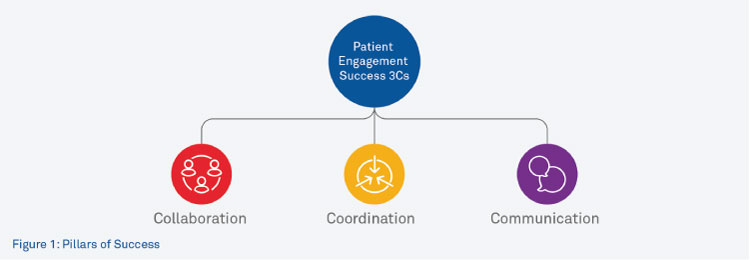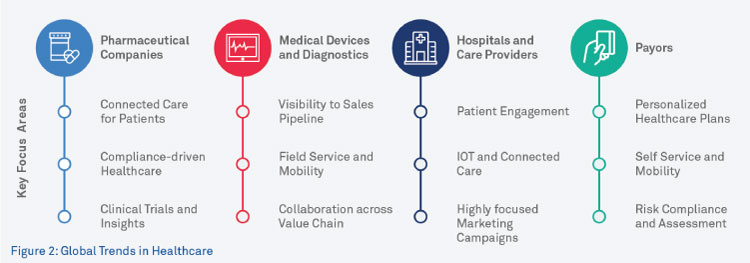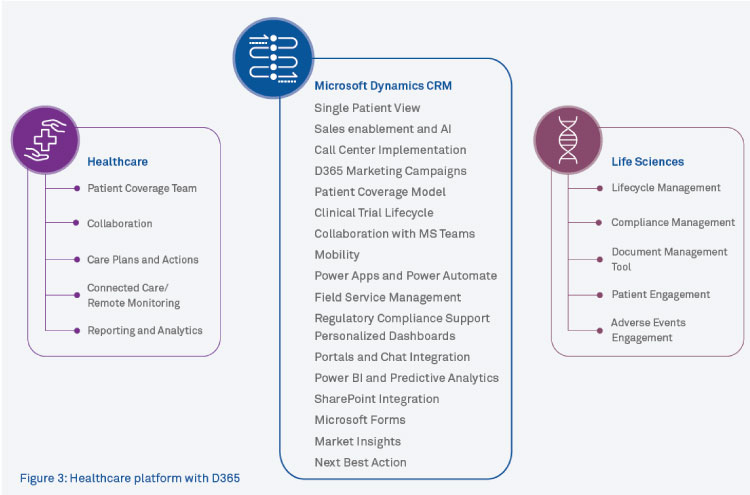Today’s healthcare industry is rapidly changing amidst digitization, changing demands, and calls for a quicker triage process. Healthcare is evolving and adapting to disruptive changes at an exponential rate, especially in unforeseen pandemics or calamities.
The ways patients gather information, interact, and consume healthcare services are also evolving. It has become imperative to not only empathize with patients but also walk alongside them to discover how technology can contribute to a better and healthier life.
The healthcare industry is vast and spread across multiple sectors with varied stakeholders. Each has a defined need and pursuit to make people’s lives healthier.
Be it pharma, a healthcare provider, or an insurance company, patients are the center of all interactions and offerings. Patient 360 view has become very important to drive clinical trials, patient engagement, diagnostics, in-patient support, and patient outreach for offers.
The healthcare industry is very specific to the region or geography. Hence, it is of prime importance to understand the population mix and respective needs of the citizens, regulations and health compliance, government schemes and guidelines, existing collaboration between various health sectors, need for confidentiality of patient data, referral lifecycle, etc. to determine key success factors and devise personalized solution for patients.


Especially in this era where hospitals are struggling to support coronavirus patients and continue to focus on regular consultations, there is a dire need of achieving operational efficiency and business continuity that helps them support ways forward with minimal effort. Patients having access to right information at any given point is becoming increasingly important and a mandate for a successful healthcare foundation.
Self-service options via portals or mobile apps are ways of engaging patients across channels with personalized content and building trusted relationships.
Technology should be a partner and an enabler to achieving better health. Bringing the community of care providers together to collaborate on and extend the patient experience would drive healthier lives via technology. Microsoft’s D365 platform focuses on driving innovation in healthcare and life sciences through AI and cloud computing. The platform supports user journeys for clinics, care teams, HCPs and, most importantly, patients with simplicity. D365 can also channelize the growing need of mobile apps for different user groups/stakeholders to address issues efficiently.

Let us understand the journey of some key stakeholders and the benefits offered to them through this solution:
Patient
While patients seek treatments for their health concerns, they also look for caring relationships. Visibility to a patient’s medical history not only helps in treating them, it builds trusted relationships too.
Connected care has become a very popular choice amongst single, older adults living independently or people needing assisted care. IoT and wearable bands/devices have made it possible to track a patient’s vitals and have alarm systems in place in case of emergencies to help. Some hospitals have started using wearables to avoid cardiac arrest or other side effects, especially post surgeries.
With predictive analytics and ML defined data and algorithms can detect certain anomalies or predict the chance of having certain diseases, such as cancer. This helps delaying or eliminating the issue before it occurs.
Publishing and sharing health assessments pertaining to an issue, such as a pandemic like COVID-19, could help raise awareness. Taking these regularly would help to monitor patients’ well-being.
Health care providers
Healthcare providers/hospitals are redeveloping themselves to create a trusted environment for patient engagement. In the given times, there is a need to establish contactless kiosks as touchpoints to perform an initial assessment and then direct the patient to the correct department/specialty for triage.
Digital clinics are the future of this industry. Enabling remote connections between patients and specialists is not only critical but also paramount to extending support to patients struggling with non-coronavirus issues.
Collaboration amongst the complete care team and Patient 360 view has become integral to each operation. The Microsoft Teams collaboration platform can be leveraged to form care teams around a patient or specialty to discuss issues (COVID-19/special treatments/SOPs) or emergencies.
Physicians, specialists, and nurses use tablets/mobile apps to update and monitor inpatient vitals and inform each other on any health and safety incidents.
Payors
Whenever a patient visits a doctor for OPDs or as an inpatient, one of the crucial factors to consider is the mode of payment for the bills/invoices. It is becoming important to have an integrated solution between HCPs and payors to have a smooth settlement process for patients.
Some payors and HCPs are enabling solutions to share data to enable a faster settlement process. This information is also helping payors target personalized health plans to patients based on their medical history and past settlements.
Payors can also propose pandemic-related health plans that can help patients cover certain expenses with top-up options like additional plans for family.
Clinicals
The most critical part of any life science is to have an automated and optimized end-to-end process in place for clinical trials and adverse events. Business-specific, guided process flows right from sample identification till the patients are onboarded can be successfully managed and tracked.
This industry is driven strongly by regulatory compliance and SOPs that should be enabled in a secure way with every tool or technology they interact with. Hence, there is a need for a secured system for centralized monitoring.
Connecting different sites data for collective projection and reporting using Power BI of clinical trials being conducted across the globe will help make informed decisions.
Technology as enabler to healthier world
Patient experience is fragmented across key stakeholders: Health care providers, care givers, specialists, and payors. Hence, creating awareness on niche diseases, pandemic-related diseases (like COVID-19), new medicines, and markets is a challenge. Consistent touchpoints inside as well as outside the doctor’s office are conduits to successful healthcare.
Improving healthcare outcomes will require companies to continually fuel innovation that improves the quality of a healthcare provider’s customer service. The objective is to give back to the community and enable complete care with convenience.
Wipro shares the vision to provide patients convenience and stress-free Patient–HCP interactions. Hence, we have developed a complete care solution based on the Microsoft D365 platform to drive patient journeys with intuitive design. This is one step toward building better lives through innovation.
Moneet Kaur
Principal Consultant at D365 – Cloud Enterprise Platforms , Wipro Ltd.
Moneet has over 13 years of experience in helping businesses envision their CRM/ CX goals, harmonizing requirements across groups and leveraging technology to meet those business needs. She has helped multiple clients globally in realizing the value from their investment in CRM/ CX tools. Moneet is passionate about customer journey mapping and its impact on customer delight.